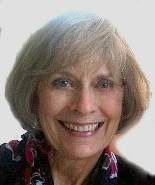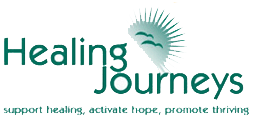by Sharon Bray
 Nearly twelve years ago, I sat in a surgeon’s office, feet twitching with impatience. I checked my watch. I’d waited twenty minutes. If he didn’t appear soon, I was going to be late for the meeting I’d scheduled nearby. I reached for a magazine. National Geographic, Sports Illustrated, an old issue of People. Nothing of interest. I sighed and check my watch again.
Nearly twelve years ago, I sat in a surgeon’s office, feet twitching with impatience. I checked my watch. I’d waited twenty minutes. If he didn’t appear soon, I was going to be late for the meeting I’d scheduled nearby. I reached for a magazine. National Geographic, Sports Illustrated, an old issue of People. Nothing of interest. I sighed and check my watch again.
“Hello, Sharon.” The doctor came into the room, a file in his hand. I smiled.
“Hi, Dr. C.” My eyes darted to the file and back to his face. I felt a flicker of
It had been exactly one week since the procedure, a biopsy of my left breast, ordered the same afternoon the radiologist pointed to the constellation of calcifications visible on a mammogram and sent me across the courtyard to the surgeon’s office. My mammography was routine. The biopsy seemed, at the time, little more than precautionary, just to be sure. It was nothing to worry about.
Dr. C. sat down in a chair across from me, opened my file and studied the paper that lay on top.
“It’s cancerous,” he said. “Malignant.”
“Cancerous?” How could it be cancerous? I forced myself to pay attention, to make sense of the jumble of
“Early stage. Non-invasive, but…”
“But?”
“We need to take care of it right away,” he said. “Left alone, it’s a bad act.”
I nodded my head as if I understood what he was saying. A bad act. “So, what’s next?” Cut to the chase, I thought. I have a meeting to go to. I don’t want to be late.
A lumpectomy was scheduled for the following week. “Fine,” I said, sliding off the exam table. At the door, I extended my hand to shake his. “Thank you, Dr. C.,” I said in my best professional voice, but the doctor didn’t let go of my hand.
“Sharon,” he frowned at me. “Are you all right?”
Of course I was all right. I had a meeting. If I hurried, I could get there on time.
It would be weeks after the lumpectomy, after the endless days of radiation and multiple appointments with a team of specialists, before the reality of cancer began to sink in. I existed in a fog, disbelieving and numb. I donned a blue hospital gown in the radiology department every afternoon and swallowed a Tamoxifen pill every morning. Still, I felt like a phony. How could I have cancer? I didn’t look any different.
I began to experience some unexpected side effects to treatment. My digestive tract suddenly malfunctioned. I lost weight. I cried a lot for no apparent reason. My husband and close friends expressed concern, but other than the conversations between my doctors and me, I avoided discussions of cancer. I carried guilt around like a sodden backpack. Other people had real cancers, the kind that were life threatening. I’d gotten off easy. Finally, at the urging of a friend, I signed up for a summer creative writing workshop.
Writing has always been the refuge I turn to in any difficult period of life. I’d filled dozens of notebooks with emotional outpourings after my first husband’s sudden death, but this was different. I’d be writing every single day for a week with a group of strangers. I balked at the idea, and considered withdrawing several times, but something kept pulling me toward it. I showed up on the first day of class, nervous, but determined to stick it out. I quickly discovered a gentle and encouraging instructor, and under her guidance, a safe and supportive writing environment. Nevertheless, I wore my protective veneer like a suit of armor, choosing to write stories that revealed nothing about what I was going through at the time.
On the very last day of the workshop, the instructor passed around a straw basket filled with slips of paper, a single line from a poem written on each. I closed my eyes, reached into the basket and drew a slip. I opened my eyes and read, “The hospital corridor was dimly lit.” My heart lurched. I stared at the words for a moment, took a deep breath and opened my notebook to a blank page. Words poured onto the paper. I described the radiology waiting room, blue hospital gowns, my silent companions, my feelings of guilt, my fear when the technician called, “Ms. Bray?” At the end of twenty minutes, I had written several pages.
When the instructor asked who would like to read aloud, I timidly raised my hand. “I will,” I said.
I finished reading and nervously waited for the group to respond. One by one, they began, describing how my words had touched them. Clearly, this was the most powerful piece I’d written all week. I felt something inside me open up. I had begun my journey of healing. Writing gave me the key to unlock the door, write into my experience, make sense of and discover meaning from it.
Cancer—or any other serious illness—changes us. Perhaps, as poet Jane Hirshfield said, “Illness remodels us for some new fate.” A year after my diagnosis, I began leading expressive writing groups for men and women living with cancer, providing the same supportive environment for them to write and share their stories of cancer just as I had experienced the summer before. I’ve been leading those writing groups for eleven years now, and thanks to the cancer survivors who write and share their stories with me, my life is richer than ever.
Bio: Sharon Bray is the author of two books on the healing power of writing during cancer: A Healing Journey: Writing Together through Breast Cancer (2004) and When Words Heal: Writing Through Cancer (2006). She leads ongoing writing groups at Scripps Green and Stanford Cancer Centers as well as a writing workshop for faculty and students of Stanford Medical School. She also is the author of the blog, www.writingthroughcancer.com, which features weekly writing prompts for men and women with cancer. For more about Sharon, see www.sharonbray.net.


